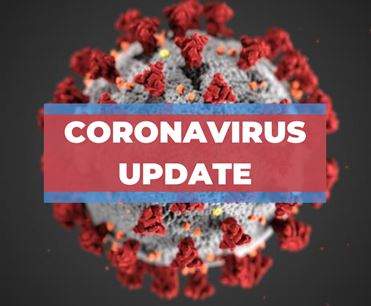
The O.C. Health Care Agency reported today 65 total cases of COVID-19 in Santa Ana and 931 cases Countywide. A total of 50 new cases were reported today as well as one death. Thus far there have been a total of 15 deaths in Orange County due to COVID-19. There are 129 victims in the hospital and 75 of them are in Intensive Care Units.
Here is how other major cities in Orange County are faring:
- Anaheim still tops the County with 95 cases
- Irvine reports 82 cases
- Newport Beach reports 75 cases
- Huntington Beach reports 67 cases
- Laguna Beach reports 34 cases
- Orange reports 32 cases
- Buena Park reports 30 cases
- Garden Grove reports 24 cases
- Mission Viejo reports 23 cases
- Costa Mesa reports 21 cases
- Fullerton reports 21 cases
- Fountain Valley reports 14 cases
- Westminster reports 14 cases
As of April 6, 2020, there are a total of 15,865 positive cases and 374 deaths in California, according to the CA Department of Public Health.
Ages of all confirmed positive cases in California:
- Age 0-17: 197 cases
- Age 18-49: 7,753 cases
- Age 50-64: 4,344 cases
- Age 65 and older: 3,516 cases
- Unknown/Missing: 55 cases
Gender of all confirmed positive cases in California:
- Female: 7,600 cases
- Male: 7,957 cases
- Unknown: 308 cases
Here is how of our neighboring Counties are faring:
- L.A. County reports 6,360 cases and 147 deaths.
- Riverside County reports 1,016 cases and 28 deaths.
- San Bernardino County reports 547 cases and 17 deaths.
- San Diego County reports 1,454 cases and 31 deaths.
How can people protect themselves?
There is currently no vaccine to prevent COVID-19. The best way to prevent illness is to avoid being exposed to this virus. The virus is thought to spread mainly from person-to-person between people who are in close contact with one another (within about 6 feet). This occurs through respiratory droplets produced when an infected person coughs or sneezes. These droplets can land in the mouths or noses of people who are nearby or possibly be inhaled into the lungs. Older adults and people who have severe underlying chronic medical conditions like heart or lung disease or diabetes seem to be at higher risk for developing more serious complications from COVID-19 illness. Every person has a role to play. So much of protecting yourself and your family comes down to common sense:
- Washing hands with soap and water.
- Clean and disinfect frequently touched surfaces daily. If surfaces are dirty, clean them using detergent or soap and water prior to disinfection.
- Avoiding touching eyes, nose or mouth with unwashed hands.
- Cover your cough or sneeze with a tissue or your elbow.
- Avoiding close contact with people who are sick.
- Staying away from work, school or other people if you become sick with respiratory symptoms like fever and cough.
- If you smoke or vape, consider quitting. Smokers who already have lung disease or reduced lung capacity could be at increased risk of serious illness.
- Following guidance from public health officials.
Please consult with your health care provider about additional steps you may be able to take to protect yourself.
Who is at Higher Risk for Serious Illness from COVID-19?
Early information out of China, where COVID-19 first started, shows that some people are at higher risk of getting very sick from this illness. This includes:
- Older adults (65+)
- Individuals with compromised immune systems
- Individuals who have serious chronic medical conditions like:
- Heart disease
- Diabetes
- Lung disease
If you are at higher risk for serious illness from COVID-19 because of your age or health condition, it is important for you to take actions to reduce your risk of getting sick with the disease, including:
- Isolate at home and practice social distancing.
- Wash your hands often with soap and water for at least 20 seconds, especially after blowing your nose, coughing, or sneezing, or having been in a public place.
- Avoiding touching eyes, nose or mouth with unwashed hands.
- Avoid close contact with people who are sick, and stay away from large gatherings and crowds.
- Consider ways of getting food brought to your house through family, social, or commercial networks.
It is also important that you listen to public health officials who may recommend community actions to reduce potential exposure to COVID-19, especially if COVID-19 is spreading in your community.
For more information visit the CDC’s website.
What if I’m sick?
What are the symptoms of COVID-19?
Typically, human coronaviruses cause mild-to-moderate respiratory illness. Symptoms are very similar to the flu, including:
- Fever
- Cough
- Shortness of breath
COVID-19 can cause more severe respiratory illness.
What if I have symptoms?
Patient: If a person develops symptoms of COVID-19, including fever, cough or shortness of breath, and has reason to believe they may have been exposed, they should call their health care provider before seeking care. Contacting them in advance will make sure that people can get the care they need without putting others at risk. Please be sure to tell your health care provider about your travel history. You can also take the following precautionary measures: avoid contact with sick individuals, wash hands often with soap and warm water for at least 20 seconds.



Not !!! To re call our choice Cecilia Iglesias !!!
Please don’t $ale our leaders positions.